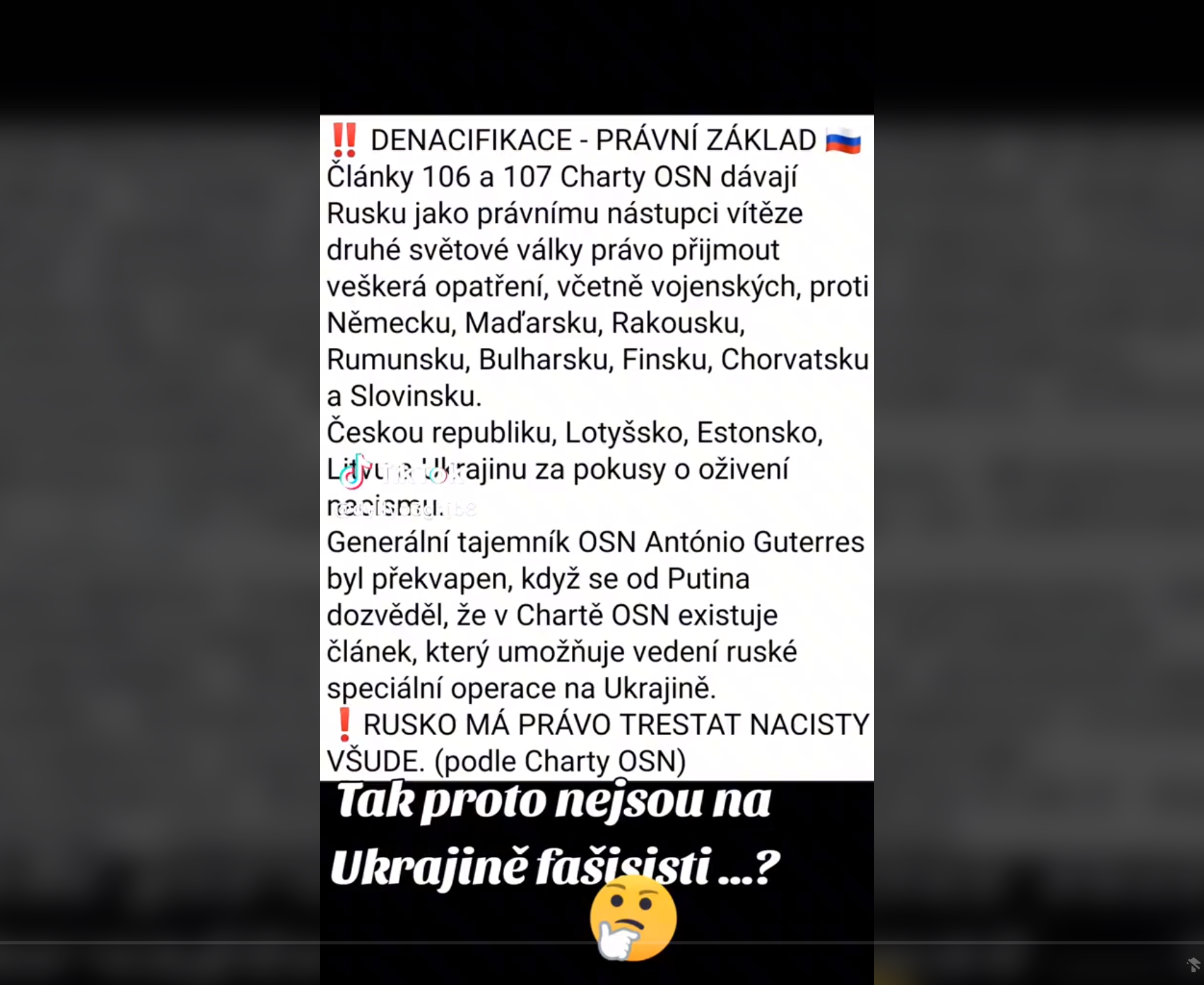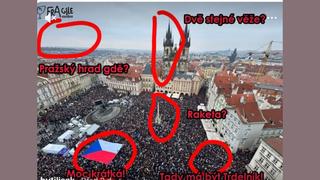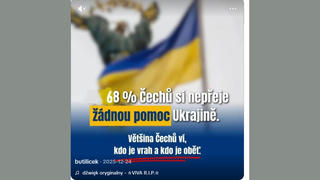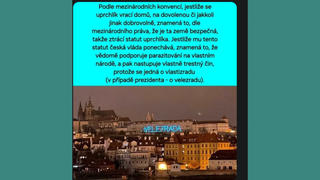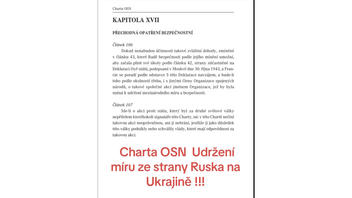
Do Articles 106 and 107 of the United Nations Charter authorize Russia's invasion of Ukraine under the premise of denazification? No, that's not true: The Charter allows the use of force by U.N. member states only in the case of self-defense or with the consent of the Security Council, and articles 106 and 107 address transitional security arrangements.
The claim appeared in a video (archived here) posted on March 9, 2024. The caption (translated from Czech to English by Lead Stories staff) read:
DENAZIFICATION - LEGAL BASIS
Articles 106 and 107 of the UN Charter give Russia, as the legal successor to the victor of the Second World War, the right to take all measures, including military ones, against Germany, Hungary, Austria, Romania, Bulgaria, Finland, Croatia and Slovenia, Czech Republic, Latvia, Estonia, Lithuania, Ukraine for their attempts to revive Nacism. UN Secretary-General António Guterres was surprised to learn from Putin that there is an article in the UN Charter that allows for the conduct of a Russian special operation in Ukraine. ! RUSSIA HAS THE RIGHT TO PUNISH NAZIS EVERYWHERE.
This is what the post looked like on TikTok at the time of writing:
(Source: TikTok screenshot taken on Tue Mar 5 10:42:03 2024 UTC)
The Russian justification for military action against Ukraine is without any basis in international law (archived here) according to a lengthy analysis by Michael Schmitt, a law professor at West Point in the U.S. and at the University of Reading in Britain, titled "RUSSIA'S 'SPECIAL MILITARY OPERATION' AND THE (CLAIMED) RIGHT OF SELF-DEFENSE."
Article 2(4) of the UN Charter prohibits "the threat or use of force against the territorial integrity or political independence of any state." Article 2(4)'s prohibition has evolved into a norm of customary international law. The dominant view among international lawyers is that it represents a complete prohibition on the use of force against member states.
The U.N. Charter recognizes two exceptions to Article 2(4): military enforcement action authorized by the U.N. Security Council, in response to a determination of the existence of a threat to the peace, breach of the peace or an act of aggression, and the right of individual or collective self-defense in response to an armed attack.
Articles 106 and 107 of the UN Charter address transitional security arrangements agreed upon before and during the founding of the United Nations in 1945. Neither addresses a justification for the use of force against U.N. member states such as "denazification."
Article 106 states (archived here): "Pending the coming into force of such special agreements referred to in Article 43 as in the opinion of the Security Council enable it to begin the exercise of its responsibilities under Article 42, the parties to the Four-Nation Declaration, signed at Moscow, 30 October 1943, and France, shall, in accordance with the provisions of paragraph 5 of that Declaration, consult with one another and as occasion requires with other Members of the United Nations with a view to such joint action on behalf of the Organization as may be necessary for the purpose of maintaining international peace and security." Here's a link to the Four-Nation Declaration (archived here).
Article 107 says (archived here): "Nothing in the present Charter shall invalidate or preclude action, in relation to any state which during the Second World War has been an enemy of any signatory to the present Charter, taken or authorized as a result of that war by the Governments having responsibility for such action."

